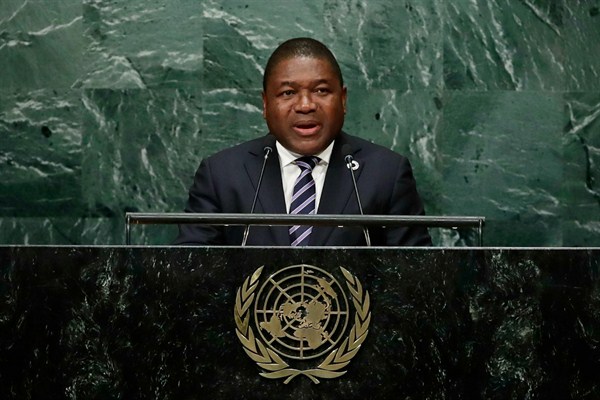Last week, Mozambique’s president, Filipe Nyusi, made several high-profile personnel changes in the state’s intelligence service and security sector. The reshuffle followed a strong endorsement of Nyusi’s leadership at the latest congress of the ruling Frelimo party, as well as a wave of violent attacks on police and politicians. In August, Nyusi met face-to-face with Afonso Dhlakama, leader of the Renamo opposition party, for the first time since 2015. Frelimo and Renamo fought against each other in a civil war that killed an estimated 1 million people from 1976 to 1992, and a flare-up in violence since 2013 has sparked fears of a return to widespread conflict. In an email interview, Carrie Manning, a professor of political science at Georgia State University, discusses the latest developments in the talks and what might be driving the recent violence.
WPR: What progress had been made in peace talks?
Carrie Manning: On Aug. 6, Nyusi and Dhlakama met in the remote Gorongosa mountains, where Dhlakama has been in hiding since the end of 2015. The two leaders affirmed a truce called in December 2016 and pledged to resolve outstanding issues around provincial decentralization and security sector integration. They also said they would sign a peace agreement before the end of November.

